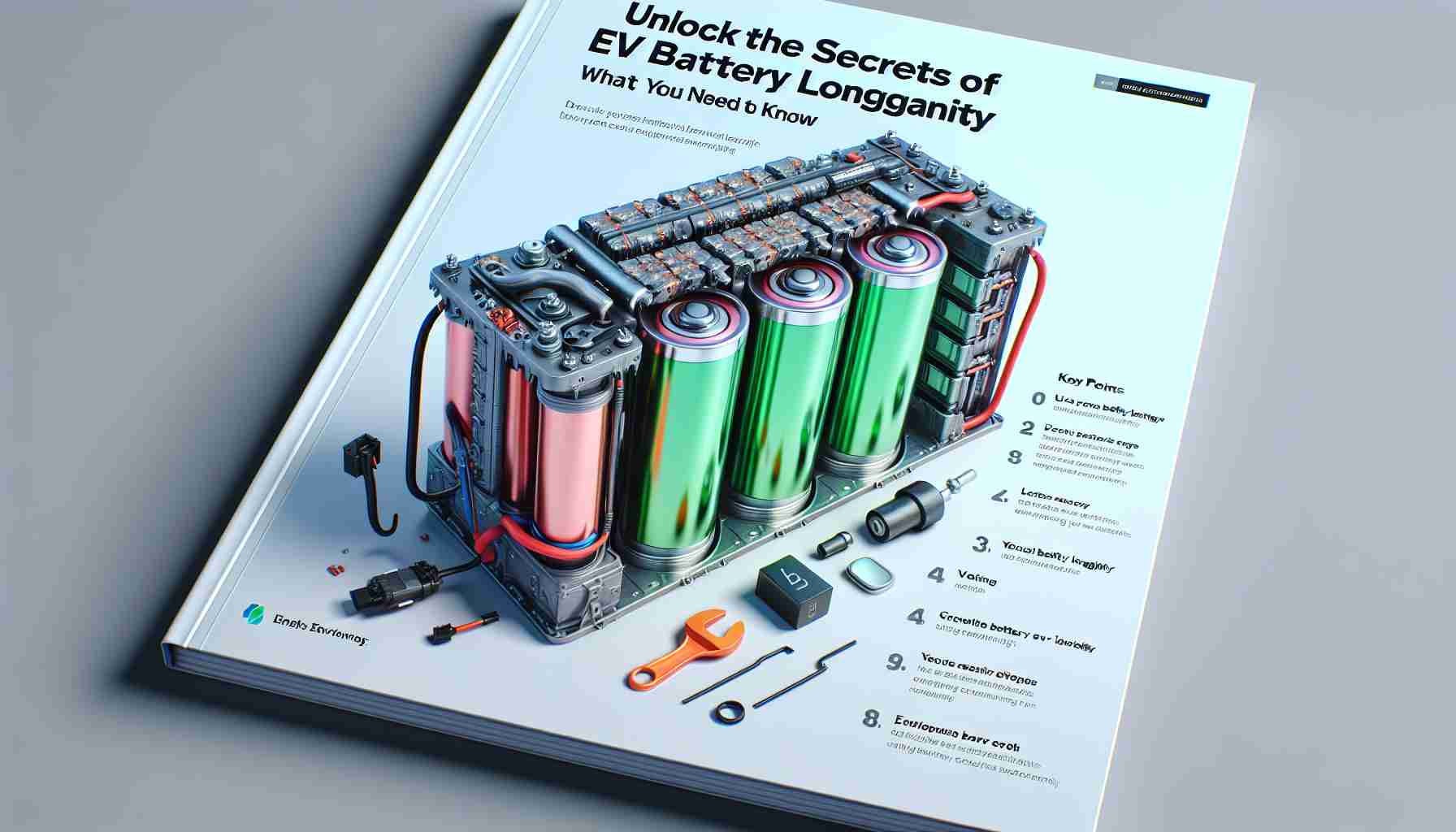- EV batteries generally maintain 93% health after 70,000 km and nearly 90% after 200,000 km.
- 98% of tested used EVs have battery health above 80%, countering myths of quick degradation.
- Battery health certificates offer crucial insights for customers considering used EVs.
- Arval is working towards establishing a standard for battery evaluations to enhance resale value transparency.
- Investing in used electric vehicles is becoming more reliable and appealing as support in the marketplace increases.
Curious about the lifespan of electric vehicle batteries? A groundbreaking study from Arval, a leader in vehicle leasing, is here to shed light on your concerns. Analyzing over 8,300 battery health certificates from 30 brands sold across eight countries, the research reveals some game-changing insights about used electric vehicles (EVs).
Imagine this: on average, an EV battery retains a remarkable 93% of its health even after 70,000 km, and nearly 90% after a staggering 200,000 km! This means that 98% of the tested vehicles boasted battery health above 80%, debunking myths about rapid degradation and performance loss.
Arval’s study serves as a beacon of hope for potential buyers. In today’s market, where transparency matters, their battery health certificates provide detailed insights into battery capacity and projected range under various driving conditions. Armed with this knowledge, customers can confidently navigate the used EV market, knowing that investing in an electric vehicle is more reliable than they may have thought.
Working alongside specialists like Moba and Aviloo, Arval is revolutionizing the game by introducing a standard for battery evaluations. While there’s no official European standard yet, Arval is paving the way for trust and transparency in resale values, ultimately making owning a used electric vehicle a smart choice.
Takeaway? With long-lasting batteries and growing support in the marketplace, embracing electric vehicles has never been more appealing! Keep moving forward with confidence in your journey towards sustainable driving.
Uncover the Truth: The Real Lifespan of Electric Vehicle Batteries Revealed!
Understanding Electric Vehicle Battery Lifespan
The lifespan of electric vehicle (EV) batteries is a pivotal concern for potential buyers, especially with the fast-evolving EV market. The recent study from Arval sheds light on the longevity and reliability of these batteries, but there is even more to learn about electric vehicle batteries that can help buyers make informed decisions.
# Key Insights
1. Battery Health Retention: According to the research by Arval, which analyzed over 8,300 battery health certificates, EV batteries tend to retain 93% of their health after 70,000 km. This impressive statistic helps dispel common misconceptions regarding rapid battery degradation.
2. Market Trends: The demand for used electric vehicles is rising due to their efficiency and environmental benefits. With 98% of the vehicles studied maintaining battery health above 80%, purchasing a used EV is becoming a more appealing option for eco-conscious consumers.
3. Future Specifications: Many new models are incorporating advanced battery technology, contributing to longer lifespans and improved performance metrics compared to older models. This includes innovations such as solid-state batteries and enhanced lithium-ion technologies.
4. Sustainability and Environmental Impact: As more businesses focus on sustainability, the production of EV batteries is evolving, with companies exploring recycling solutions that can help mitigate environmental concerns.
Frequently Asked Questions
1. How do electric vehicle batteries degrade over time?
Electric vehicle batteries degrade gradually rather than abruptly. Factors affecting degradation include temperature extremes, charging habits, and overall usage. However, studies show that many batteries retain significant capacity even after substantial mileage.
2. What are the most common concerns when purchasing a used electric vehicle?
Buyers often worry about battery life, health, and potential replacement costs. The Arval study aims to alleviate these concerns by providing detailed battery health reports and evaluations, allowing buyers to make informed decisions.
3. What innovations are being introduced to improve the lifespan of EV batteries?
Innovations such as solid-state batteries and advanced thermal management systems are being researched and implemented. These technologies promise enhanced safety, longer lifespan, and reduced degradation rates, which contribute to a more sustainable future for electric vehicles.
Additional Features and Insights
– Pros and Cons of Used EVs: Pros include lower cost, established performance, and reduced environmental impact. Cons may include the risk of battery degradation and reduced range compared to new models.
– Market Forecasts: The used EV market is expected to grow significantly as battery longevity improves and the perception of EV reliability strengthens.
– Sustainability Focus: Manufacturers are increasingly prioritizing sustainable practices in production and recycling, contributing to the lifecycle management of EV batteries.
Suggested Links
For more insights on electric vehicles and battery longevity, visit Arval.
In conclusion, understanding the real performance and longevity of electric vehicle batteries provides potential buyers with the confidence they need to enter the market. With advancements in battery technology and the backing of comprehensive studies, embracing electric vehicles is becoming a smarter and more sustainable choice.



















